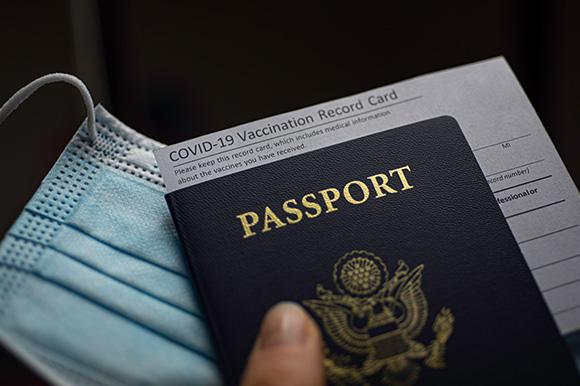IATA, ICAO Urge Caution on Border Restrictions For Air Passengers

IATA Director General Willie Walsh is pushing back against new border entry restrictions being imposed by numerous countries in response to the discovery of the omicron variant of COVID-19, calling governments’ response to the latest pandemic development “panicked.”
ICAO also issued a bulletin encouraging countries to work together to keep air travel flowing as the omicron variant—on which health authorities are gathering data—threatens the air traffic recovery.
“The discovery of a new coronavirus variant in South Africa—omicron—has panicked governments into once again restricting or entirely removing the freedom to travel,” Wash said. “After nearly two years of dealing with COVID-19, we should have progressed beyond these knee-jerk, uncoordinated, Pavlovian-like responses, to recognize that the virus is well on its way to being endemic. Public health officials tell us that we should expect variants to emerge. And by the time they are detected, the reality is that they are probably already present around the globe. . . . Travel restrictions are not going to stop the spread. And they will do real harm to people and economies.”
ICAO’s bulletin is “urging a more measured and evidence-based approach to countries’ national air transport restrictions due to the emergence of the [COVID-19] omicron variant.”
ICAO Secretary General Juan Carlos Salazar said: “It’s critical that we continue to respond to this disease and its variants on the basis of the best available science and evidence.” He warned of “the costs and implications of being excessively cautious and overly restrictive in this context.”
ICAO said it a statement that it has been “consistently reinforcing that no country can defeat COVID-19 in isolation, and that the costs of significantly restricted global air mobility affect all countries and are especially acute for landlocked and small island developing states.”
The ICAO bulletin called for “a globally coordinated approach” and for countries to make decisions based on “principles of solidarity and equality in order to mitigate the transmission of the disease and facilitate the recovery of international travel and the global economy.”
Walsh said public health officials “understand that after the initial outbreak, travel restrictions have very little impact on virus spread.”
He added: “International travel all but stopped in April 2020, and the virus spread despite the assurances of our political leaders that banning travel would control it. To date, over 260 million people are known to have been infected. Many more cases are probably unreported. Meanwhile, the human and economic cost of deconnecting the world may never truly be calculated. So, it is beyond frustrating that in their response to omicron, governments are ignoring good sense yet again.”
Walsh said governments “must not lose sight of the end game, which is making vaccines available to all. . . . Planeloads of vaccines will do far more to tame this virus than travel restrictions can ever achieve.”




